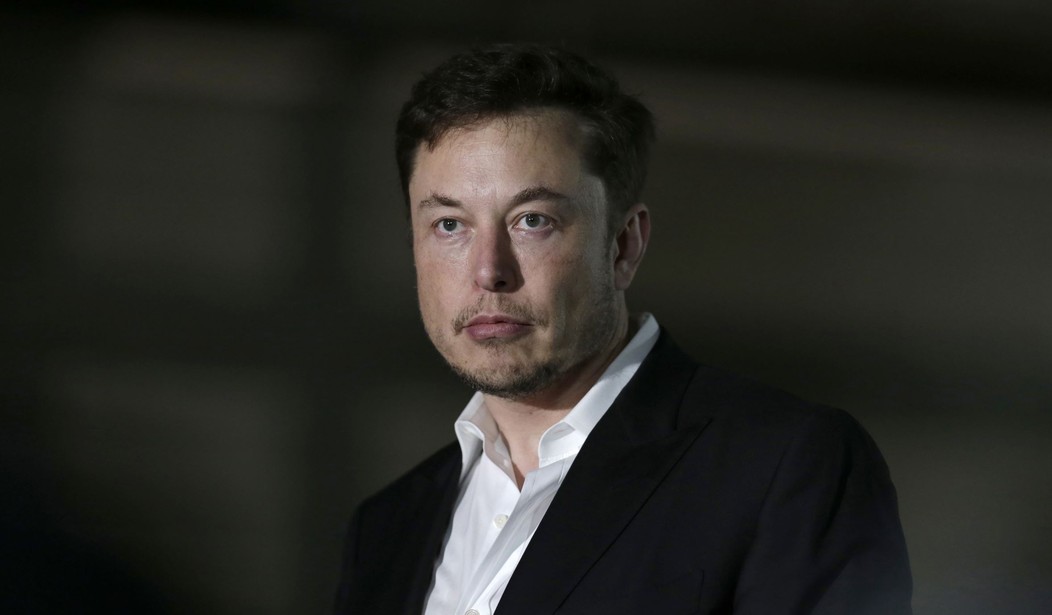Over the last few weeks, SpaceX and Tesla CEO Elon Musk has taken a beating in the media. Recent negative stories include Tesla’s halting of important brake testing in desperation to meet production goals for its Model 3 sedan, Musk lashing out with an unfounded accusation when he was challenged on his involvement in the high-profile Thailand cave rescue, the Securities and Exchange Commission opening an investigation into Musk for possible violations of federal security laws regarding a cryptic tweet about having secured funding to take Tesla private, and subsequent stories about concerns from Tesla’s board regarding Musk’s mental state.
What hasn’t gotten much coverage, though, is a provision in the Fiscal Year 2019 National Defense Authorization Agreement (NDAA) signed into law last week, which may have been crafted with the explicit purpose of giving Musk something to be cheery about.
Last year, I and many others noticed that the FY 2018 NDAA would restrict funding for new launch systems, seemingly leaving SpaceX’s Falcon 9 as the last man standing. The year prior, SpaceX donor-recipient John McCain also inserted an amendment into the NDAA that would have banned the use of the Russian-made RD-180 engine before other American alternatives were created – again, ostensibly making SpaceX a gatekeeper of the government rocket-launching world.
But while those efforts proved futile, the third time appears to have been the charm for SpaceX.
This year, the potential damage comes in the form of Congress unduly pressuring the military to utilize reusable rockets, which right now come only from SpaceX. The issue isn’t that Section 1603 of the recently-passed FY 2019 NDAA authorizes consideration of reusable rockets where appropriate, but that it also adds extra burdens through a requirement that the Secretary of Defense explain in writing to Congress if the agency proposes using space launch services “for which the use of reusable launch vehicles is not eligible for the award of the contract.”
Congress, in other words, is subtly placing its own judgment, possibly influenced by crony back-scratching, over that of the relevant national security experts.
Recommended
All this said, there’s not yet need to fret. Although aspects of Section 1603 may have the intent of favoritism, if the Pentagon does its research and Congress asks the right questions, it can still serve a national security purpose. Instead of artificially bringing more business to SpaceX, the bill language can, if appropriately acted upon, spark long overdue examination of the merits of reusable versus expendable rockets, leading to more informed legislatures and improved policy outcomes.
Musk and his advocates believe reusable rockets are the future of the space industry, but others’ research has led them to think it is an impractical idea that sounds good in theory but doesn’t work well in present reality.
Recall that the government’s partially-reusable Space Shuttle, retired in 2011, was supposed to provide America with easy access to space for $10.5 million per launch. Instead, the per-flight cost averaged at around $1.6 billion. Fourteen astronauts died on board due to quality control issues.
One can certainly speculate about the degree to which government mismanagement and bureaucracy caused these shortcomings and hypothesize that SpaceX’s results will be different; however, the good news is that Pentagon and congressional decision-makers don’t need to surmise. The company already has a whole body of completed work in this sphere that they can review.
This summer, SpaceX retired its reusable Block 4 rocket class. Did it have an acceptable success rate? Was its re-flight goal achieved? Did it bring costs up or down?
These are all questions that policymakers should ask and receive answers to before making contracting decisions.
While I don’t have access to this in-depth Block 4 data and lack the necessary expertise to render a final verdict, I do know that each Block 4 booster could only fly two to three times, which seems to be much lower than necessary from a cost-effectiveness standpoint.
But facts and figures, not speculation from analysts like me, should shape government policy. That’s why it’s critical for the Pentagon and Congress to use Section 1603 to the country’s advantage by taking a deep dive into the data and separating fact from fiction, and industry boasting, themselves. Through conducting the proper research and asking the right questions, they can singlehandedly turn one potential corporate handout into a blessing.

























Join the conversation as a VIP Member